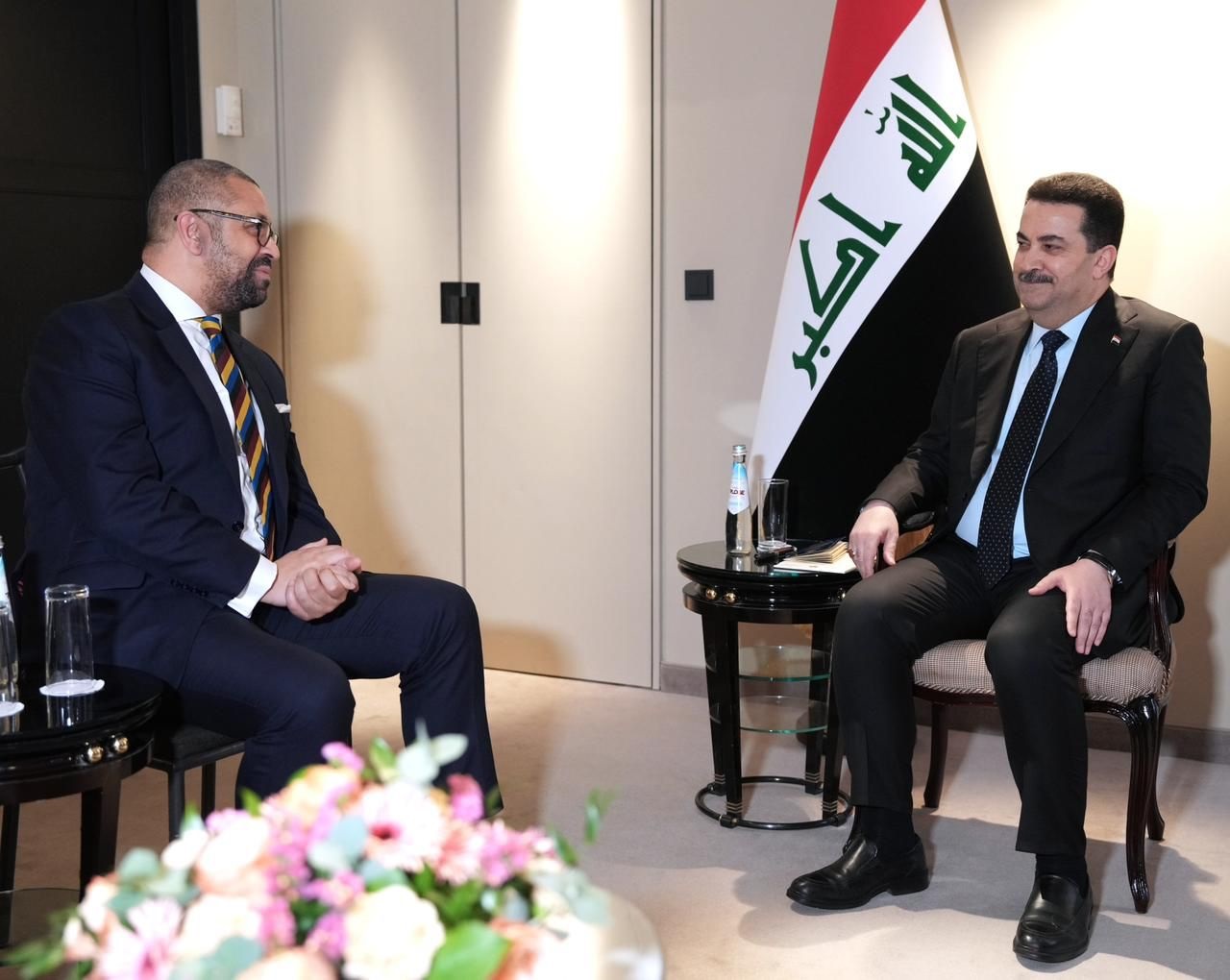Britain is actively working to strengthen its presence in the Middle East, with a particular focus on areas of strategic interest. This intention is evident from statements made by various British officials. On October 3rd, Andrew Mitchell, the British Minister of State for Development and African Affairs, expressed his concern to “The National” newspaper, stating that Britain’s influence in the Middle East has diminished, primarily due to the decline of its soft power.
Alicia Kearns, Chair of the Foreign Affairs Committee in the British Parliament, echoed similar sentiments in August when she emphasized the need for the United Kingdom to place a greater emphasis on its relationships with Middle Eastern nations, following a strong inclination towards the Indo-Pacific region. Former British Trade Minister, Liam Fox, further commented earlier this month, noting that the Gulf region is currently undergoing a fundamental transformation in business through collaborative projects, but British companies are failing to capitalize on these opportunities.
Key Steps
Despite these growing concerns about the diminishing influence, Prime Minister Rishi Sunak’s government has undertaken several measures to re-establish its role in the Middle East. These measures include:
- High-level Visits and Diplomacy: Over the past few months, British officials have made multiple visits to the Middle East, engaging in discussions on mutual interests, particularly regarding the British role in achieving stability in the region. A notable example is Foreign Secretary James Cleverly’s visit to Qatar, Kuwait, and Jordan from July 25th to 28th. During this trip, the British minister emphasized the growing partnerships between the United Kingdom and Arab countries, emphasizing mutual benefits.
Furthermore, on September 18th, on the sidelines of the United Nations General Assembly, the British Foreign Secretary convened meetings with the foreign ministers of the Gulf Cooperation Council (GCC) countries or their representatives. These discussions also included the GCC Secretary-General, Jassem Al-Bedaiwi, in New York. The talks revolved around regional and global issues, reviewing progress in the strategic partnership between the GCC countries and the United Kingdom. The objective was to enhance consultation, coordination, and cooperation across various fields, while also addressing several regional crises and issues.
- Strengthening Security and Defense Collaborations with Iraq: Alongside its efforts to bolster political and diplomatic ties with key Middle Eastern nations, the British government is prioritizing the enhancement of military and security cooperation in the region. A significant step in this direction was the visit of Tom Tugendhat, the British Minister of State for Security at the Home Office, to Iraq from August 21st to 23rd. During his visit, Tugendhat engaged in discussions with military and security officials in both Baghdad and the Kurdistan Region, focusing on shared security concerns between Iraq and the United Kingdom.
These concerns predominantly revolve around supporting Iraq in sustaining the accomplishments made by the international coalition in defeating ISIS, with Britain actively participating. London has expressed its willingness to provide modern equipment and technology to the Iraqi security forces, aimed at bolstering their capabilities in the fight against terrorism, eradicating ISIS, and advancing Iraq’s security stability. The discussions also included plans to enhance information sharing between the two nations to strengthen British-Iraqi cooperation in counterterrorism. Furthermore, the possibility of signing a memorandum of understanding for coordinated
efforts in counterterrorism was explored.
- Conducting Airstrikes Against Terrorist Organizations: The British contribution extends beyond support for Iraqi forces in the battle against terrorism. The Royal Air Force has executed airstrikes against active ISIS elements on Iraqi territory. On May 2nd, the Royal Air Force’s “Typhoon” aircraft carried out an attack on two terrorist targets in northeastern Iraq. This action was part of the ongoing cooperation between British forces and the Iraqi government, aimed at preventing the resurgence of ISIS in the country. Notably, in 2022, the Royal Air Force had previously conducted three airstrikes against the organization’s elements in both Syria and Iraq.
- Increased Funding for Crisis-Hit Nations: The plan for 2023 and 2024 includes an increase in British development aid for countries facing crises such as Afghanistan, Yemen, Syria, and Somalia. During a donor conference addressing the humanitarian crisis in Yemen on February 27th, Leo Docherty, the UK’s Minister for Europe, made a commitment to provide additional support for healthcare, nutrition, and services for malnourished children. The United Kingdom has consistently ranked as the fourth-largest donor of aid to Yemen. On July 28th, the UK unveiled a new humanitarian program worth £160 million, designed to offer essential healthcare support to vulnerable Yemeni women and children. In addition, London has augmented its financial support to respond to recent flooding in Libya and an earthquake in Morocco, earmarking a package of up to £10 million for these purposes.
Despite the Foreign, Commonwealth & Development Office’s announcement of a slight increase in British development funding for 2023 and 2024, it has not yet returned to pre-2020 levels. In 2020, the government temporarily reduced aid from 0.7% of gross national income to 0.5%. This reduction will have far-reaching consequences for the humanitarian situation in various conflict and crisis-affected countries in the Middle East, particularly in the realm of women’s health. Estimates indicate that the funding cut will impede the UK’s ability to support vital services for women and girls in Afghanistan and will leave half a million women and children in Yemen without access to healthcare. Therefore, the reduction in British aid funding threatens healthcare systems in Yemen, unless other donors can step in with alternative funding. Additionally, girls’ education in Ethiopia will be impacted, and efforts to combat violence against women and girls in South Sudan and Somalia will receive less attention and inadequate resources.
- Negotiating a Free Trade Agreement with Gulf Cooperation Council Countries: Following the UK’s departure from the European Union, the government has initiated trade negotiations with global partners. Securing a free trade agreement with the Gulf Cooperation Council (GCC) countries is a top priority for the British government. Such an agreement has the potential to significantly reduce or eliminate customs tariffs on British exports to the region. Several estimates indicate that the total trade volume between the UK and the GCC countries increased by over 70%, reaching £64.5 billion by the end of March of the previous year. This growth was driven by rising oil prices and increased demand for services as GCC countries diversified their economies.
Current Course of Action
Eminent British figures have voiced their regret regarding the UK’s disengagement from the Middle East, particularly in the wake of the government’s decision early last year to eliminate the position of Minister for the Middle East and North Africa. Additionally, the discontinuation of the BBC Radio’s Arabic service on January 27th, which had been broadcasting for 85 years, has intensified these concerns. Consequently, many British politicians are advocating for the government to rebuild its relationships with Arab nations and capitalize on the ongoing changes in the region, especially in the realm of commerce. Such action is considered urgently needed, given London’s departure from the European Union.


